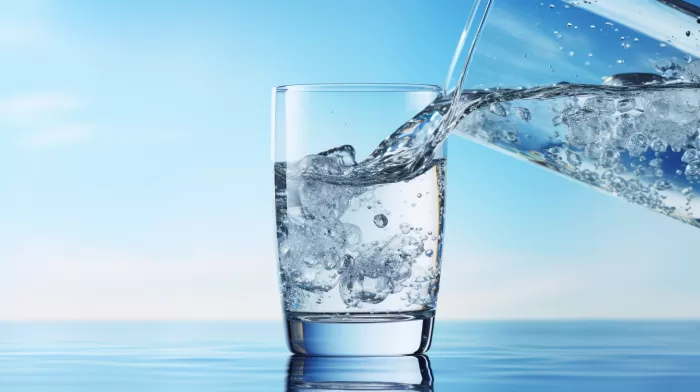As the weather gets warmer, one of the most dangerous and often overlooked health concerns is dehydration. You might not be sufficiently hydrated due to a busy lifestyle or just not always having access to clean, filtered water. What’s alarming is that, as your body becomes accustomed to chronic dehydration, you lose your sensitivity to water deprivation and don’t feel thirsty when you should be. More than half of your body mass consists of water in the form of intracellular fluid, interstitial fluids, and cerebrospinal fluid, which means that dehydration can turn into a major problem. Maintaining a proper fluid balance allows essential communications for your brain function, immunity, metabolism, and digestion processes to flow smoothly.
The damage caused by dehydration
When your body doesn’t have enough water, it’s like trying to drive a car that doesn’t have sufficient oil to lubricate its system. What happens to a car that isn’t properly lubricated? The engine overheats and gets damaged. A similar effect takes place in your body when you’re not well-hydrated. This often occurs because your system is running too fast and too long without taking a break and replenishing fluids to keep everything running smoothly. Adding the rising temperatures to the mix, and you have a recipe for disaster.
In most cases, the solution is as simple as drinking more water. On average, for every 50 pounds of body weight, you need a quart of water daily. Consuming it at specific times throughout the day also helps, such as drinking two glasses upon waking up to jumpstart your organs and a glass half an hour before a meal to support digestion.
The importance of water quality
Being mindful of where your water comes from is essential, especially with drought conditions rising in several parts of the country. Protecting and improving our precious water resources may be the most important public health and environmental issue we face today.
You might think that bottled water is the safest choice, but that isn’t always the case. A Congressional report revealed that bottled water has less oversight in terms of quality compared to tap water. Many people spend money on bottled water to ensure they are hydrating themselves with safe, clean water, but water-quality tests for bottled products are not required by the Food and Drug Administration (FDA). Over the years, contaminated bottled water has been recalled due to the presence of arsenic, bromate, cleaning compounds, mold, and bacteria. Home water filtration systems might be expensive, but they can give you peace of mind knowing you’re consuming cleaner water.
Recognizing signs of dehydration
Many of us are unaware that we’re chronically dehydrated because we often confuse thirst for hunger. This is a result of constantly ignoring our body’s thirst signals and failing to recognize them.
Here are some signs of chronic dehydration:
- Hunger: Constant snacking, and particularly sugar cravings, can be indicators of dehydration imbalance.
- Allergies: Dehydration can lead to increased histamine levels and imbalanced immune systems, causing dust, pollen, mold, and animal allergies to emerge.
- Digestive problems: Acid reflux and constipation are less known signs of chronic dehydration. Hydration is necessary for all digestive processes to function smoothly.
- Depression, irritability, and brain fog: Due to the substantial blood supply the brain requires, dehydration results in reduced blood supply, causing mental and emotional imbalances, and in extreme cases, temporary mental impairment. High levels of stress hormones also increase dehydration in the body, while stress leads to fluid loss. Breaking this cycle involves staying hydrated and finding healthy ways to alleviate stress.
- Immune suppression: Dehydration weakens the immune system by impairing immune cell signals, increasing vulnerability to colds, flus, and infections. This, coupled with chronic inflammation, contributes to more severe illnesses.
Aside from drinking enough high-quality water, eat foods with high water content, such as leafy greens, celery, watermelon, and cucumber. This will hydrate you and provide additional minerals to support electrolyte balance. Coconut water is also an excellent natural source of electrolyte minerals. Furthermore, limit dehydrating foods and drinks, like sugar, alcohol, and caffeine, to help you remain well-hydrated during hot summer days.
For more information on maintaining a healthy diet, visit National Institute of Diabetes and Digestive and Kidney Diseases.



